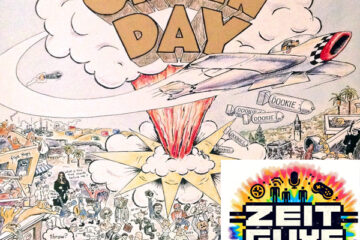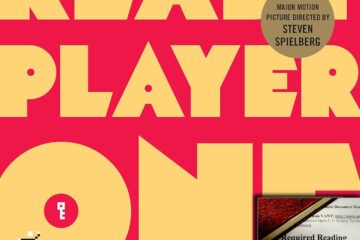“Born in the U.S.A.” by Phoebe Schmitt
“Born in the U.S.A.” by Bruce Springsteen is one of America’s most iconic songs played on the Fourth of July for a patriotic backdrop. However, the song is far from boasting patriotism. Springsteen was born on September 23, 1949, into a working-class family. His generation had lived through an ordeal: being sent off to fight for their country in Vietnam and coming back to a collapsing economy and no jobs. In his music, Springsteen relates to the struggles of the working class and having a traumatic time after he served in the military. “Born in the U.S.A. is a reflection of that. The Vietnam War, lasting 1955-1975, was a proxy war between North Vietnam, supported by the Communists, and South Vietnam, supported by the United States. The war was widely controversial in the U.S.; over 3 million people were killed, and around 60,000 were American soldiers. In 1973, President Nixon signed the Paris Peace Accords to withdraw U.S. forces. This was the first war that the U.S. had withdrawn from. When troops returned, the economy had crumbled and jobs were scarce.
“Born in the U.S.A.” by Bruce Springsteen displays the aspects of being an American. The tune and the lyrics contrast the positives and negatives of having been “Born in the U.S.A.” “Born In the U.S.A.” is usually confused for a ride-or-die patriotic song because of the upbeat tune. Springsteen’s voice almost yells the lyrics, seemingly showing his passion for the country. However, the lyrics contradict this. Instead of matching the flag-waving theme, the lyrics portray the hardships of achieving the American dream. The song follows a man’s story of his time in Vietnam. Born in a working-class town, Springsteen started to work young and got in a lot of trouble, which eventually got him drafted into the war. He failed the physical examination which got him out of serving. Instead, the song follows an anonymous man through his time during and after the war. In Verse Two, he explains that he “Got in a little hometown jam/ So they put a rifle in [his] hand/ Sent [him] off to a foreign land/ To go and kill the yellow man” (Springsteen 11-14). By saying “sent [him] off to a foreign land,” it makes it seem like it was against his will. During that time, petty criminals could either choose to go to jail or serve a tour in the army. He sings how the man was lucky enough to come home, but he “had a brother at Khe Sanh/ Fighting off the Viet Cong/ They’re still there, he’s all gone” (Springsteen 23-25). Khe Sanh was one of the bloodiest battles of Vietnam, using over 100,00 pieces of artillery over the curse of the 75-day battle. In the next two verses, he describes the issues of getting a job post-Vietnam. After the war, the American economy took a huge hit. Unemployment rates were at a new high and there was a recession. Soldiers struggled to get and keep jobs. With all of the negativity in the song, the chorus shows the patriotism that the song is known for. In the last chorus, he sings “I’m a cool rockin’ Daddy in the U.S.A. now” (Springsteen 39). This represents overcoming, lightheartedness, and humor. These are all positive things representing his current success. The tune of the song also contributes to a more positive song. Its music was written in B major, making it a more rock song than the demo. The demo, made in 1982, was in a minor key and sung at a slower pace, making the song more melancholy. The demo also used a lot of reverb adding a lonely and sad atmosphere to the song.
With all things taken into consideration, “Born in the U.S.A.” is not a die-hard patriotic song, but is also not only a dark and sad song. Springsteen used this song to combine his frustrations with America and how experience during Vietnam and afterward, with how love for America. This song is relevant today and to many past generations. The struggles of serving your country, going through economic hardships, and overcoming domestic problems do not completely undermine your love for your country.
“Born in the U.S.A.” by Deeley Arciero
Bruce Springsteen released “Born in the U.S.A.” in 1986, and it soon became a song known in households across the country. In the lyrics, Springsteen describes the life of a veteran of the Vietnam War trying to find a well-paying job after returning home. The song exemplifies the troubles of the life of a baby boomer in the United States, and justifies the problems by saying he was “born in the U.S.A.” In the background of these lyrics describing the difficult life of an American veteran, a guitar and drums play an upbeat, patriotic song. However, these instruments were not the original background music for this shockingly solemn story.
The juxtaposition used for the comparison of the background music to the lyrics perfectly describes what some may call the American Dream. Romanticized by most people, the American Dream is the idea that if you work hard enough to be successful in America you will succeed and become happy. However, this dream is not realistic, even in the song the narrator recounts the time he is “sent … to a foreign land” to fight a war and still can not find a job. Distracting the audience by picking this specific background music gives the song a whole deeper meaning about what it means to be American. Springsteen manages to release a song with such a strong message behind it, while still giving the people a classic rock song they love.
Although the juxtaposition of the song and lyrics explains a whole different understanding of the song, this was not the original demo of how Springsteen wrote “Born in the U.S.A.” Originally, the demo has a much sadder, more acoustic sound to it, truly representing the song’s true meaning of a hard life following the war. Springsteen decides to release the other version because of the consumer market in America. No patriotic, proud American wants to listen to a depressing song about the realities of going to war and coming home to nothing. Instead, they want an upbeat and happy song, where they feel like they can scream and shout for their country.
Born in the U. S. A. by Maggie Seaver
The song “Born in the U.S.A. ” was released in 1984. The music piece was said to be the one of the most misunderstood songs ever written because of it being interpreted as a nationalistic anthem. Springsteen’s “Born in the U.S.A” song was written about a soldier returning from the Vietnam war who struggled to get his life back on track. The lyrics at the beginning explain how the veteran was born into a life of hardship and was sent off to war, only to return to betrayal from people he fought for. “Born in the U.S.A ” can be perceived, both, as a song of pride to be an American and a song that shows a dreadful perspective of a veteran who has been disregarded.
The musical work, “Born in the U.S.A,” was thought to honor the United States with its style of music. In actuality, Springsteen wrote the original, demo version of this song with a more sorrowful feel. The introduction of the well known song begins with a ubeat rhythm that is in a high key. Though, the original version was in a lower key and a slower tempo, making it have a more serious tone. As both recordings contained the same lyrics, being “down in the shadow of the penitentiary” was more understandable in the first edited song. The quote summarizes the pain and adversity the Vietnam veteran went through coming back to America.
Not only do the lyrics sound uplifting with Springsteen’s chanting voice, but Springsteen pumped his fist in a live performance during the chorus of the song. In the song, a Vietnam veteran describes his life before and after he has finished serving in the war. He looked for a job but was declined. Although it is difficult to grasp the actual meaning of the song because of the overshadowing upbeat music, the song consists of other negative words such as fires, burning, and dead man. Bruce Springsteen created a song which had lyrics that contradicted the tempo and music. No matter what, it is a song that is remembered by most.


